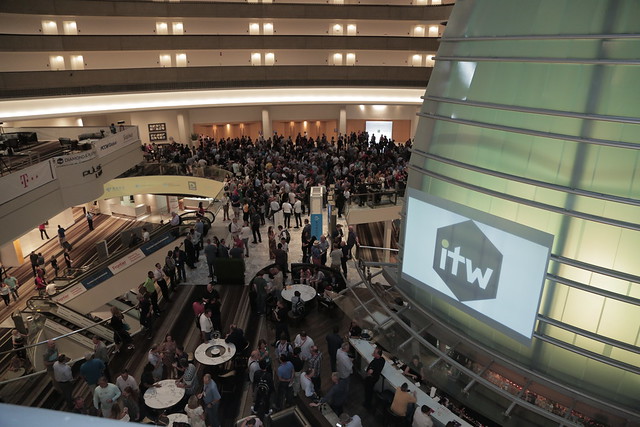MEF CEO Dario Betti shares his key takeaways from the recent International Telecom Week in Atlanta touching on the state of A2P, the role of Africa in the global market and discovering that the rumours of Telecom’s demise are greatly exaggerated.
The end of Telecom is NOT now
The public might be excused for thinking of telecom is in a deep crisis – nowadays newspapers paint telecom providers as busily reinventing themselves as 5G and IoT players.
While these topics are really important and exciting, they too often hide from view how the telecom world remains large, rich and lively.
ITW is an established appointment in the telecoms calendar, an event where you can truly perform a health check on the industry.

With its focus on wholesale and infrastructure, ITW does not have the glamorous ministry delegations, the royal appearances, large consumer press, and the gimmicky demonstrations of MWC in Barcelona.
However, ITW is not a show, it is where deals are done.
The 7,000 professionals from more than 2,000 companies that are participating are on a mission to buy and sell connectivity, not to impress.
The message often repeated at MEF over the last 10 years has been: voice is an important platform, but OTT and VoIP are transforming its business dynamics, telcos should embrace a chorus of services: voice, text and data.”
If you want to hear the beating heart of the telecom market, walk through the corridors at ITW.
MEF did just that, and the verdict is a perhaps surprising level of energy in telecom: the world is still calling, messaging and undoubtedly sharing data.
The claim is supported by Ovum research; it confirms that despite price drops and commoditisation the telecom wholesale market will continue growing in the next several years. In 2019, all regions are expected to grow with a global wholesale market expected to be worth $142 billion.
Transformation = Voice + Messaging + Data
The message often repeated at MEF over the last 10 years has been: voice is an important platform, but OTT and VoIP are transforming its business dynamics, telcos should embrace a chorus of services: voice, text and data.
Connectivity is not linked to one type of service anymore. The pure ‘Voice’ wholesale channel is feeling the pinch, and the discussion among players confirm that growth in voice market is difficult to find. The revenue from wholesale voice services is still large but in a terminal decline.
A2P market, time to join in?
The interest shown from voice players to A2P market and RCS was very strong. The healthy growth on business communication for SMS and RCS are making eyes water.
MEF hosted a messaging section running on the Sunday. A lively audience of some 300 professionals took time from their weekend to participate in a packed room. The most common question asked was: Is it too late to join the A2P market?
The debate was interesting and articulate. To capture some of the main ideas we would summarising as: it is not too late to join the A2P market, but you have to plan wisely.
A2P is undergoing a deep transformation with value created by players outside simple aggregation of traffic but with more complex solutions around omnichannel management, permission management, campaign analysis, conversational commerce, and customer care solutions.
Voice players are welcome, but they might also consider partnering at first, as the world of A2P is moving faster and faster.
The race for Africa
It is worth to note how Africa is still a key area for telecom development. Patrick Christian, principal analyst at TeleGeography, reported that Africa remains the fastest growing region for Internet usage, but volume of data remains shockingly low compared with than other markets. While affordability remains a critical issue, the slow deployment of fixed and mobile data networks has been also an important factor.
However, the roll out of fiber and data networks is progressing at a steady pace. The Africa digital economy is not fulfilling its true potential yet, but it is surely catching up with the rest of the world.






The market is growing, but there are still plenty of strange re-selling happening: fraud is everywhere. The industry needs to clean up its act